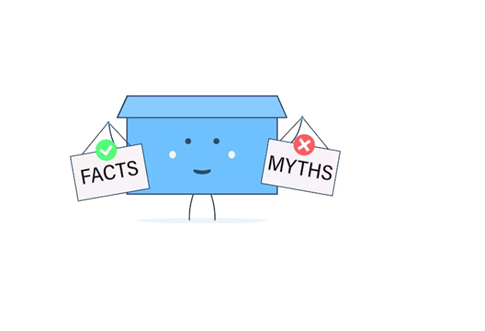
Table of Contents
Is It True That Addiction Is A Disease? Debunking Myths Surrounding Substance Use
Yes, addiction is a disease. This is what the American Medical Association and the National Institute on Drug Abuse state about substance abuse. These bodies classify people with addiction as having a medical condition.
Even though these bodies classify drug and alcohol addiction as a disease, many people are not ready to accept it. A disease is fundamentally damage to a system or organ. Also, a disease is something that affects your well-being. These things happen with alcohol use disorder as well. So, it is a disease.
Also, when you do not stop using substances, certain circuits in your brain become dysfunctional. So, any type of dependence, be it nicotine, cocaine, or opioids, is a disease that should be treated before it gets too late.
Improving Response to Addiction
Education about substance use and how to prevent and treat the disease is a crucial step in improving response. When a person does not have the right information about addiction, it can lead to stigma.
Stigma plays a crucial role in preventing an addictive individual from seeking help. So, the right education is important to prevent or even treat substance use disorder.
Stigma Around Substance Use
Stigma is when some people are excluded, rejected, devalued, or discriminated against in addiction education just because they belong to a specific group. Stigma related to addiction can prevent people from reaching out for help. Also, it isolates families affected by addiction due to fear of being judged by others.
Studies show that in 2018, nearly 16% of addicted individuals did not seek treatment. The reason is that they were concerned that it would negatively affect their employment. Also, nearly 15% of people feared that it would impact how their community views them.
Misunderstanding and fear generally lead to prejudice against individuals with substance addiction and even among physicians. This is why people do not see addiction as a health issue. These biases and prejudices contribute to a feeling of shame in those struggling with symptoms of addiction. This fear creates a hindrance both for diagnosis and treatment.
Breaking Stigma Around Behavioral Addiction
Stigmatization of people with addiction may enhance the challenges they face. Breaking stigmas that surround addiction involves reframing addiction as a medical condition against a flaw in the character.
Awareness and education campaigns can play an important role in challenging societal attitudes. They will foster support and empathy to take individuals to achieve sobriety.

Debunking Myths Around Substance Use Disorder
Drug Addiction is a Choice and Not A Disease
One highly persuasive myth is that people believe that they become addicted out of their own choice. Nevertheless, studies consistently confirm that addiction is a disease. The reason is that it changes the function and structure of the brain.
Neurobiological modifications in the brain’s decision-making and reward circuits bring down an individual’s ability to control impulses. This shows the disease nature of addiction.
Substance Addiction Occurs Due to a Lack of Willpower or Moral Failing
Many people addicted to drugs believe that addiction is an outcome of weak willpower or moral failing. This thought creates shame and stigma. In reality, environmental factors and genetics play a major role in making a person susceptible to addiction.
The disease model of drug use and addiction shows that individuals generally grapple with a combination of social, psychological, and biological influences beyond their control.
Only Illegal Drugs Carry The Risk Factor of Making A Person Addicted
Many people believe that addiction is associated with illegal substances alone. In reality, some prescription medications and some behaviors can also contribute to addictive patterns. The response of the brain to reward stimuli can trigger addictive behaviors. It can be from behaviors or drugs or alcohol. This makes it important to gain a broader understanding of addiction.
Now, you know about the myths and stigma that prevent people from getting addiction treatment. It is equally important to understand the disease model of addiction. This knowledge will help you get out of the ideas behind developing an addiction:
Understanding the Disease Model of Individuals Addicted to Drugs
You can understand that addiction is a disease when you understand its relapsing and chronic nature. The disease model emphasizes the biological basis of substance dependence. It highlights the changes in the brain that continue even after you stop using the substance.
Similar to other chronic health issues like hypertension and diabetes, addiction needs ongoing treatment, support, and management.
Genetics Has A Role To Play To Use Drugs
Genetics can contribute considerably to the vulnerability of an individual to becoming addicted. Some changes in genetics can influence how your brain responds to substances. It impacts your sensitivity to rewards, thereby motivating addictive behaviors.
Spotting the genetic elements of addiction is important for fostering empathy and dispelling myths about those who have become addicted.
Environmental Factors and Addiction
Yes, environmental factors can also be a factor that motivates people to use a drug. Examples include socioeconomic factors, peer influences, stress, and childhood trauma. A complete understanding of alcohol and drug use considers the association between atmospheric factors and genetic predisposition.
Understand the Term Addiction With Its Neurobiology
You might have heard that the human brain has a reward system. This system uses neurotransmitters like dopamine. This system plays a key role in addiction.
The use of any substance can lead to an excessive release of dopamine. In turn, it creates a sense of pleasure. Over time, your brain will adapt itself to this artificial stimulation. In turn, it reduces the response to natural rewards. Above all, it reinforces the addiction cycle.
Neurobiological changes emphasize the physiological basis of substance dependence.
Treatment Approaches for Severe Substance Use Disorder
Accepting addiction as a disease can have a considerable effect on treatment approaches. Apart from the right addiction medicine, evidence-based interventions will be used. Examples include behavioral therapies and counseling.
The objective is to address the underlying psychological and neurobiological factors that contribute to addiction. A holistic approach that takes both psychological and physical aspects of addiction is important. It will strengthen your road to recovery.
FAQs
Yes, stigma and myths can prevent a person from spotting the signs of addiction. Even if he spots the signs, he won't look for a treatment program, believing that addiction is not treatable. So, it is important to debunk the myths and stigma around addiction.
Yes, the Fifth Statistical Manual of Mental Disorders (DSM-V) explains physicians to specify the severity of different forms of addiction. They can evaluate the signs of addiction, and based on these signs, they can identify the treatment options needed for the health disorder called addiction. So, you need not have to continue struggling with addiction. It is highly treatable.
The statistical manual of mental disorders evolved from systems that gather psychiatric hospital stats, census, and the US Army Manual. Revisions are made to this manual regularly to add the mental disorders. These revisions also involve removing things that are no longer considered mental health disorders.










